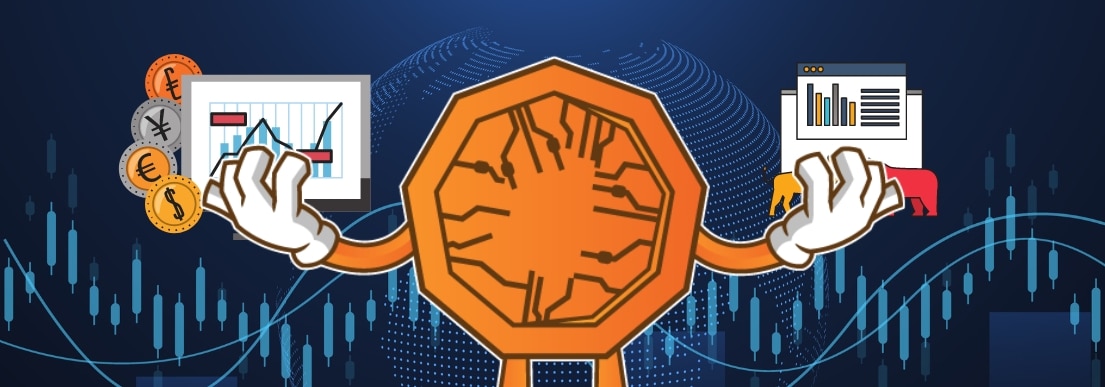- Home
- Forex News
- Forex vs. Stocks: which market offers better opportunities for Indian traders?
Forex vs. Stocks: which market offers better opportunities for Indian traders?

Indian traders and investors in 2023 and in the coming years will have adequate access to an increasing number of financial instruments, from the fast-paced foreign exchange to tried-and-true stock markets. Irrespective of the trader’s experience, his trading style and risk tolerance are essential to forex and stock trading. While some buy-and-hold traders find stock trading more suitable, many short-term traders, including scalp, day, and swing traders, may prefer a foreign exchange, where price volatility and liquidity are more pronounced.
The forex and stock markets are two of the most popular financial markets in the world. Stock trading is more popular than forex. However, the forex market is slowly coming to par with stock trading and is consistently proving to be lucrative for all kinds of traders. Determining whether stock trading is better than forex or vice versa is challenging since they have multiple similarities. In reality, stocks and forex are very different, and whether to go for stock or forex boils down to individual traders who can determine which is more suitable and profitable for their unique situations. Forex is considered riskier but more open to short-term profits, whereas stock trading is better for long-term gradual growth.
This article will cover the basics of forex and stock trading to provide a comprehensive list of similarities and differences and help novice traders choose between forex and stock trading based on risk tolerance and personal goals.
Understanding Forex Trading in India
Forex or foreign exchange is a way of profiting from buying and selling currencies in the forex market. It is an over-the-counter (OTC) market where exchange rates depend on market demand and supply. It is the world’s biggest financial market, with more than $5 billion traded daily. More and more people are participating in forex trading in India due to its advantages, like low fees, high leverage, and the ability to generate quick returns due to high liquidity and flexibility.
Compared to other markets, forex trading offers high leverage, allowing traders to take up large trade positions by depositing only a small initial amount as a margin. Due to high leverage, profits also get significantly magnified. The highly liquid forex market ensures traders can easily buy and sell currency pairs. However, it must be noted that a few exotic currency pairs may not be as liquid as the majors and minors. The forex market also provides low transaction costs compared to other financial markets. This further boosts profits from forex trading significantly. This has increased the number of traders and forex brokers India.
Besides benefits, there are risks of forex trading in India, such as high volatility, high leverage, and difficulty in predicting price movements. The forex market is popularly known for its high bouts of volatility. Exchange rates or the value of currency pairs fluctuate rapidly due to various reasons like major global economic events, forex events, political chaos, interest rates, inflation, and more. Volatility can be both a boon and a bane, depending on when the traders buy or sell foreign currencies. The general thumb rule is to buy low and sell high. Furthermore, as mentioned above, high leverage can magnify profits. It can also magnify losses if the price movements do not favor the traders. Hence, using leverage judiciously while trading in foreign currencies is important.
Forex trading in India is regulated by the Reserve Bank of India (RBI) under the Securities and Exchange Board of India (SEBI), which ensures all forex brokers, including forex brokers India, follow the Foreign Exchange Management Act (FEMA), 1999. The forex market in India is open 24 hours, five days a week. However, variability and liquidity may not always be consistent during currency market hours in India. Note that to participate in currency or forex trading in India, traders can trade only in four currencies alongside the INR – US dollars (USD), European euro (EUR), Great Britain pound (GBP), and Japanese yen (JPY).
Understanding Stock Trading in India
Stock trading in India involves buying and selling different trading instruments such as derivatives, bonds, and shares. A stock exchange is required to act as a mediator, allowing the buying and selling of company shares. India has two primary stock exchanges – National Stock Exchange (NSE) and the Bombay Stock Exchange (BSE). Furthermore, there are two markets in stock trading – the primary market, where a company lists its shares for the first time, and the secondary market, where the shares are further traded. Stock prices are driven by market demand and supply, and a company’s share price depends on market capitalization value. Stock exchanges also have separate indices in India called Sensex and Nifty that comprise shares of leading large-cap companies based on the popularity of shares and market volume.
Investing in the shares market has many advantages, such as the potential to generate high inflation-beating returns in the short run. When investors buy shares, regardless of the share size, they get proportionate control over the company. This gives them voting rights along with dividends and other bonuses. The shares market also offers high liquidity, where investors can buy or sell assets within seconds.
The risks of stock trading in India include volatility since the stock market is highly volatile, and the value of shares may fluctuate rapidly, hitting lower circuits many times. Other risks can influence the overall stock market and can never be eliminated, such as the impacts of political turmoil, national calamities, and terrorist attacks on share prices.
The overall stock market regulation, supervision, and development lie with the Securities and Exchange Board of India (SEBI). It ensures that the stock market in India works transparently and efficiently to protect the interests of its citizens by laying down regulatory frameworks that brokerages, companies, and exchanges have to abide by. Stock market trading occurs between 9:55 AM and 3:30 PM, five days a week. Some popular stocks in the Indian market include Bharat Airtel, LIC India, Bajaj Finance, and Kotak Mahindra.
Comparison of Forex and Stock Trading in India
Similarities Between Forex and Stock Trading
- Forex and stock trading are affected by market demand and supply factors.
- Forex and stock markets make up the financial market.
- Both markets have volatility due to rapid price fluctuations.
- Forex and stock trading offer high liquidity.
Differences Between Forex and Stock Trading
- Forex trading involves buying and selling different currencies, whereas stock trading involves buying and selling company shares.
- The global forex market offers an open market available 24×7, five days a week. Stock trading involves an opening and closing hour that impact the overall trading experience.
- Stock trading impacts a company’s earnings, levels of debt, and cash flows, whereas forex trading affects the prices of currencies in the market.
- Stock trading offers a relatively low degree of liquidity compared to forex trading.
Advantages of Forex and Stock Trading
- Flexibility – With little or no regulatory authority monitoring the forex and stock markets, there is maximum flexibility offered to traders.
- Full transparency – Since the forex and stock market spans over many regions, there is very low possibility of rigging and manipulation.
- Range of trading options – There are many trading options with different currencies, and listed company shares of all countries and regions have been taken together.
- Liquidity – Forex and stock trading offer the highest liquidity in the market since the volume of trades is higher than in any other market.
Disadvantages of Forex and Stock Trading
- High risk – Forex and stock markets allow high leverage, which means leveraged traders can get wiped by even the smallest fluctuations in shares and currency prices.
- High volatility – While high volatility can bring profits, it can also bring massive losses for both forex and stock traders.
- Comparison of the risks involved in forex and stock trading, including market and currency risks
Choosing Between Forex and Stock Trading
When deciding whether to choose forex trading or stock trading, the sole decision lies with individual traders, boiling down to their level of risk tolerance and personal goals. When deciding between forex and stock trading in India, forex is riskier than stock trading, but it certainly provides more access to short-term gains. In contrast, stock trading is the best option for traders who prefer slower and long-term growth. Moreover, the slippage and volatility in forex trading can make it riskier for risk-averse traders than stock markets.
Conclusion
So, which market is better for Indian traders, the forex market or the stock market? The honest answer is that it is not possible to choose a better option between the two without knowing traders’ personal unique situations, level of risk tolerance, and objectives. In fact, the two are completely different concepts with different advantages and disadvantages. Stock trading may be a suitable option if traders are searching for a secure place to store their money and simultaneously earn passive income. However, forex trading is the answer to earn greater profits in the short run, although it is a risker option. Nevertheless, traders must devote time to understanding the basics of forex and stock trading, requiring daily attention and learning about currency pairs and other financial assets.





